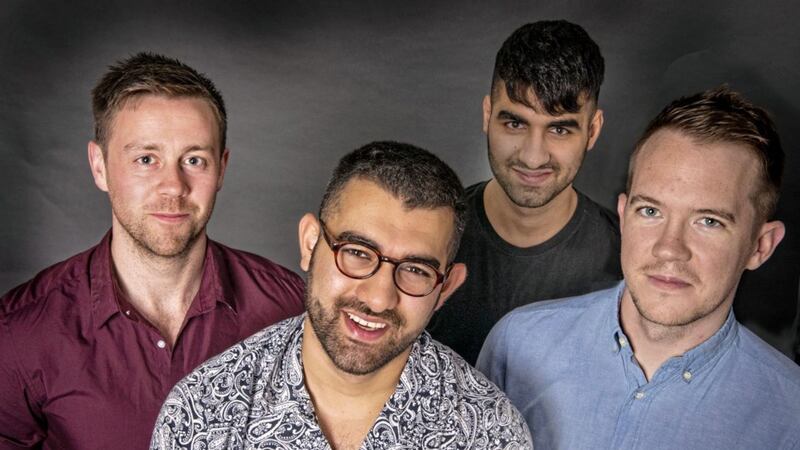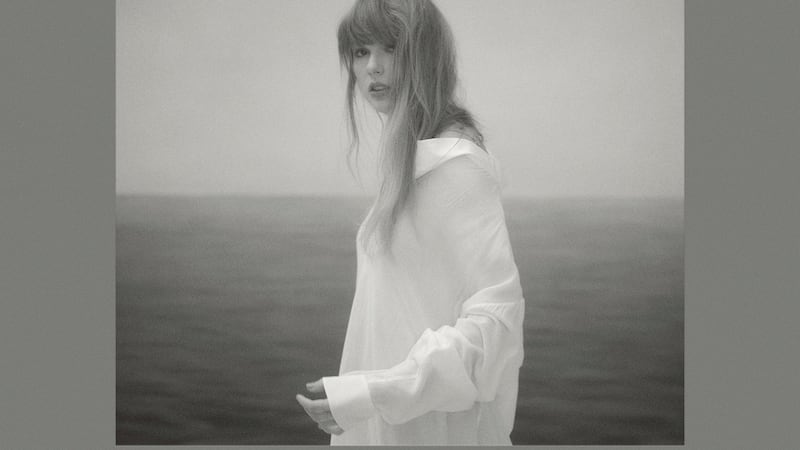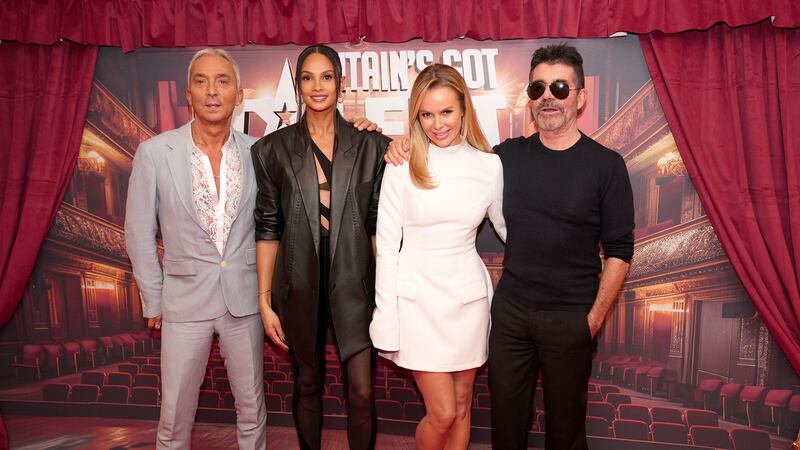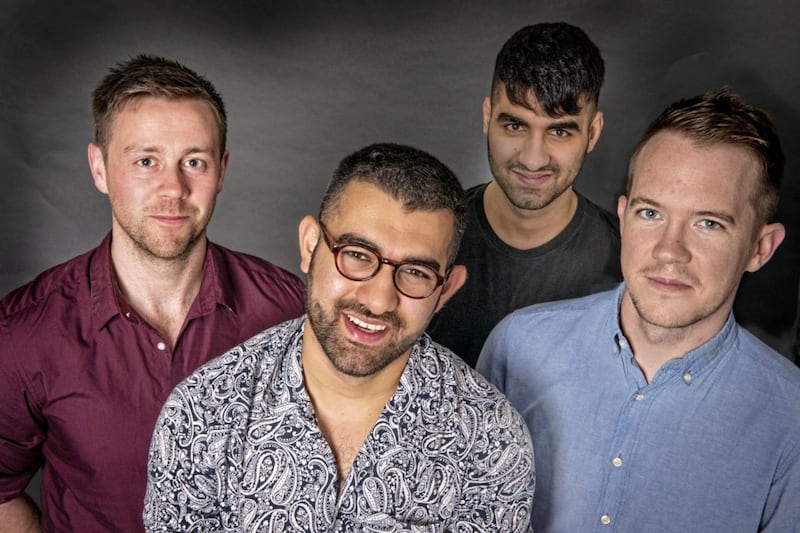WAY back in 2009, I was asked if I wanted to interview an Iranian diplomat about that year’s presidential election, won by Mahmoud Ahmadinejad for the second time.
“Hell, yeah,” was the answer of course. I told the diplomat that the article was going to appear in Irish and, worried that he thought it wouldn’t be worth his while, I asked him if he minded. He replied that he was delighted.
“Irish is an ancient language and Persian, my language, is also very ancient so I am delighted with that connection,” he said.
While links between Ireland and Persia/Iran might not be too evident, there is a another wonderful link that binds our two cultures – the band Navá.
Combining two Irish musicians, Paddy Kiernan and Niall Hughes with Iranian brothers Shahab and Shayan Coohe, the quartet has been making big waves since their beautiful first album, Tapestry, came out in 2017.
Like many other countries around the world, we only know Iran through news programmes about political violence or international tensions but for Shahab, it is his home and always will be – despite his speaking English in mellifluous Dublinese.
“I’ve learned all my English here in Dublin because I didn’t speak a word of it before I came here,” he laughs.
Shabab grew up in a house full of music lovers in a country that is one of the most cultured in the Middle East.
“Myself and Shayan started to study Persian classical music when we were five years old and I started off playing this hammer dulcimer called a Santoor while Shayan started with the Tar [a string instrument which pre-dates the lute and guitar].
“We did that for five years and then we studied at the Tehran Conservatory of Music where we studied Persian and Western classical music and got to meet some of Iran’s great musicians and composers.”
Again, there are very few countries, if any, that have just one musical tradition and Iran is no different, as Shahab explains to me.
“There is Persian classical music – not to be confused with Western classical music – which has influenced music in India and other parts of Asia. It is a spiritual and mystical kind of music. It’s not dance music, it’s music to make you think, to concentrate – it’s a bit like yoga.
“Then there is folk music, which is more like dance music; it’s mixed up with folklore and I can’t say one is better than the other, they are both very important to me,” he says.
After studying in Iran, Shahab joined his brother Shayan who was already in Ireland at the time. Shahab’s first ambition was to become a classical music composer and conductor.
One day, a friend called Simon Doyle introduced the brothers to Mayo-born bass player Niall Hughes and one of Ireland's most in-demand banjo players and teachers, Paddy Kiernan.
Simon told Shahab and Shayan that the Irishmen were keen to meet them and so they met up in a pub called Sin É in Dublin.
“We met there just to have a chat but there happened to be an open-mic session happening and so we and so we decided to play together. It was a tune we all knew but we started to improvise.
“From the very first note, we realised that this was something good, that there was huge potential there and we must have played for half an hour but we knew that this was going to be a unique experiment for us.”
The quartet met up on a regular basis after that as they decided what kind of music they wanted to create, a never-before tried fusion of Irish and Persian music. All four seem to have taken the task very seriously.
“What we are trying to do in the band is create a mix of Iranian classical and folk music with Iranian folk music really like Irish folk music in that they both come from the people. It’s not something that is always very professional but it is something that is connected to people’s hearts, it’s something that is easier to understand because I think it would be difficult for people to understand classical Persian music so we are trying to introduce it gradually,” Shahab explains.
(Before the interview, I was listening to some dastgath, one of the 12 principal modes of the art music of Persia and I know that he means!)
In 2017 Navá produced their first album, Tapestry, which met with widespread praise.
Shahab admits it was a difficult but rewarding process.
“You always have to be very careful how you represent yourself with your first album,” he says.
“This album is unique in the world as there has never been a combination of Iranian and Irish music before so we had to be very careful to keep the integrity of both traditions while being very creative at the same time. We wanted to have great arrangements and a great feeling to it so it took a long time to explore the similarities and also find the differences while staying on the same page."
The result, of course, has been a great success, with Navá winning the Caoimhín Ó Dochartaigh Stage competition at Imbolc in Derry in 2017, where they shared a stage with Beoga.
Not happy to rest on their laurels, Navá are working on a second album, Sojourns, Vol 1, which Shahab says will be quite different to Tapestry, more intimate and showing more of “an inner voice.” But, as he rightly points out, every individual has his or her own response to the music.
“The thing is that people can have their own interpretation of our music or put us into a particular genre and we don’t expect them to understand the music the same way that we do, but we expect them to feel something and to respect our music as much as they respect classical music or any other genre. I think that all genres should be respected and ours is a new genre.
“Our music is democratic in that people can love it or people can criticise it – as long as they feel something about it. Hopefully they enjoy it and it makes them feel that they want to be happy, that they want to love, that they want to be a nicer person”
:: Navá, along with poet Stephen James Smith will be appearing at the Duncairn Arts Centre in north Belfast on Saturday September 14 at 7:30pm.



